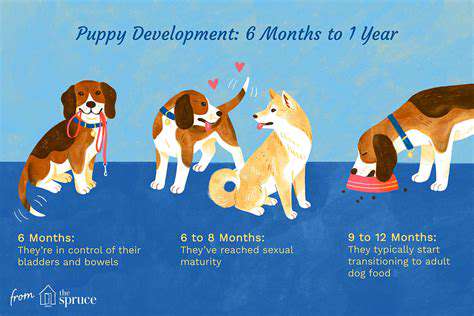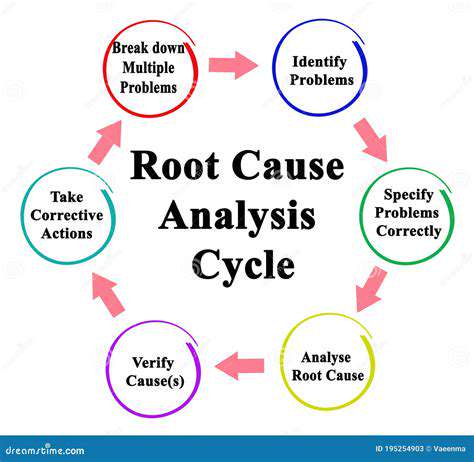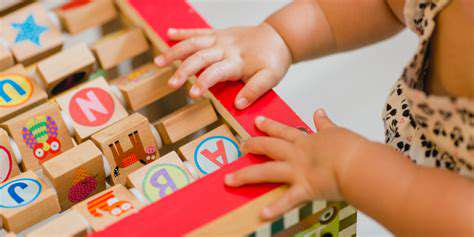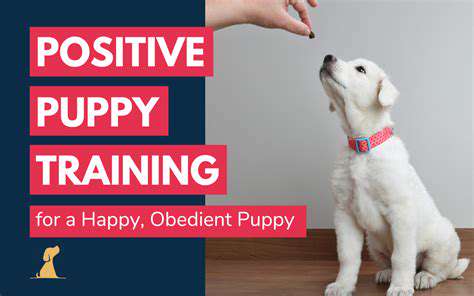Socializing Your Puppy with Strangers: Building Trust and Confidence
Encouraging Lasting Positive Experiences
Early Socialization is Key
A puppy's early life is crucial for developing positive social skills. Introducing your furry friend to a variety of people, places, and experiences during this formative period is vital for building confidence and reducing anxiety later on. Early socialization helps your puppy learn to interact appropriately with strangers, which will translate into a more well-adjusted and happy dog as they grow. This includes not only people but also other animals and different environments, which all contribute to a well-rounded and adaptable pup.
Consistent and controlled exposure to different situations will help your puppy develop a positive association with new experiences. This process isn't about overwhelming your puppy, but rather about gradual and positive introductions, ensuring they learn to approach new stimuli with curiosity and calm. Start with simple interactions and gradually increase the complexity as your puppy demonstrates comfort and confidence.
Positive Reinforcement is Essential
Using positive reinforcement techniques is paramount when socializing your puppy. Rewarding calm and appropriate interactions with treats, praise, and toys reinforces the desired behaviors. Avoid punishment or scolding, as this can create fear and anxiety around strangers and new situations. Focus on rewarding the positive actions, such as a calm greeting or a gentle approach, rather than reacting to unwanted behaviors. This positive reinforcement approach builds trust and encourages a willingness to engage with new encounters.
Consistency in your approach is key. Using the same positive reinforcement techniques consistently will help your puppy learn and understand the desired behaviors. This will help build their confidence and make them more receptive to new experiences. It also helps avoid confusion and helps them understand the expectations for interacting with strangers.
Controlled Introductions and Gradual Exposure
Never force a puppy into a social situation. Controlled introductions and gradual exposure are crucial for minimizing stress and maximizing success. Start with short, positive interactions with trusted individuals and environments. Gradually increase the duration and complexity of these encounters as your puppy demonstrates comfort and confidence. Observe your puppy's body language closely and remove them from the situation if they show signs of stress or anxiety, such as panting, whining, or trying to hide.
Ensure that all interactions are positive and enjoyable for your puppy. Avoid situations that may overwhelm or frighten them. This includes loud noises, large crowds, or overly stimulating environments. By creating a calm and supportive environment, you can help your puppy develop a positive association with social encounters. This will build a foundation for a well-adjusted and happy adult dog.
Building Trust and Confidence
Building a foundation of trust and confidence in your puppy is essential for successful socialization. This involves creating a safe and supportive environment where your puppy feels secure and comfortable exploring new experiences. Consistency in your interactions, positive reinforcement, and gradual exposure are all vital components of this process. A trusting and confident puppy is more likely to approach new situations with enthusiasm and curiosity rather than fear or anxiety.
Remember, socialization is an ongoing process. Continue introducing your puppy to new people, places, and experiences throughout their life to maintain a positive and adaptable attitude. By focusing on creating a positive and supportive environment, you can help your puppy develop into a well-adjusted and happy adult dog.
Read more about Socializing Your Puppy with Strangers: Building Trust and Confidence
Hot Recommendations
- The Impact of Early Socialization on a Dog's Interaction with Other Animals
- Car Travel and Puppy Socialization: Making the Journey a Positive Experience
- The Importance of Early Environmental Exposure for Puppy Development
- Taking Your Puppy to the Vet: Positive Socialization Strategies
- Making Training a Positive Experience for Your Puppy
- Public Transportation and Puppy Socialization: A Step by Step Guide
- Safe Socialization: Allowing Others to Pet Your Puppy
- Helping a Puppy Who Struggles with "Stay"
- Positive Puppy Interactions: Making Meetings with New Friends Fun
- No Treats Needed? Training Basic Commands with Verbal Praise










